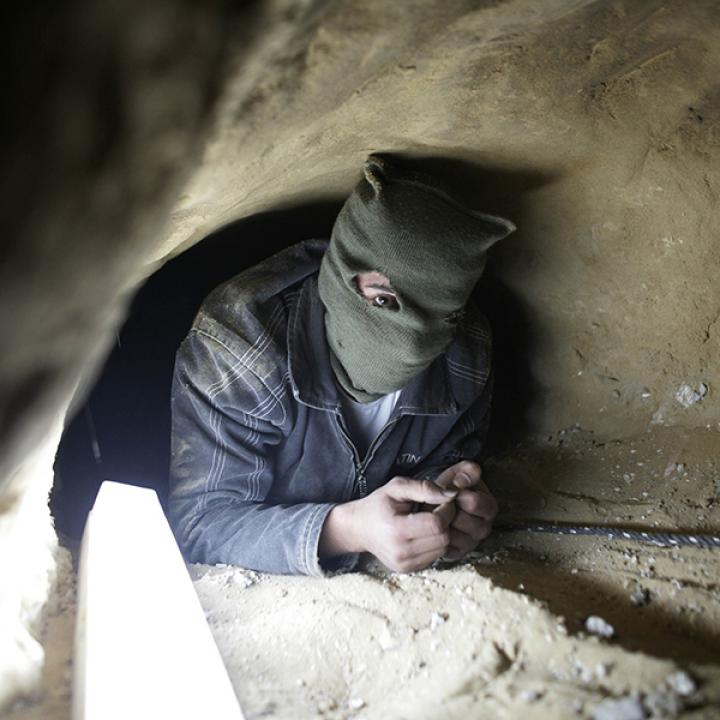
- Policy Analysis
- Policy Alert
Terror from Sinai: Global Jihadist Groups on Israel's Doorstep

Statements and a video released on an al-Qaeda website are disturbing evidence of the growing lawlessness in Egypt’s Sinai Peninsula.
The revelation that an Egyptian and a Saudi national infiltrated southern Israel from Sinai on June 18 and killed an Israeli worker is the first credible sign of the emerging global jihadist threat in the peninsula. Previously, groups using the names "al-Qaeda in the Sinai Peninsula" and "Ansar al-Jihad in the Sinai Peninsula" had released statements announcing themselves and pledging fealty to al-Qaeda's Ayman al-Zawahiri in August and December 2011 and January 2012; members of different jihadist factions had also been arrested in al-Arish. Until now, however, it was difficult to assess the legitimacy and true capabilities of these groups.
Yesterday, a new group called Majlis Shura al-Mujahedin Fi Aknaf Bayt al-Maqdis (the Mujahidin Shura Council in the Environs of Jerusalem, or MSC) announced itself, issuing two statements and a video martyrdom message from the attackers, Abu Salah al-Masri and Abu Hadhifa al-Hidhali. Both men were killed by Israeli security forces following the attack, and a senior MSC member was killed by an Israeli airstrike near Rafah today.
The choice of non-Palestinians to conduct the attacks could be part of a conscious effort to establish the Sinai as a new base of jihad operations, providing an opportunity for all Muslims -- not just Palestinians -- to fight Israel. And the MSC's credentials are enhanced by the fact that its statements and video were first posted on al-Qaeda's official jihadist forum, Shamukh al-Islam, by an organization called Ibn Taymiyah Media, a Palestinian global jihadist media outlet most closely associated with imprisoned cleric Sheikh Abu al-Walid al-Maqdisi and his followers.
In its releases, MSC named the operation the "Raid of Support for al-Aqsa and the Prisoners," dedicating it to "the reviver" Usama bin Laden, the people of Syria, the "mujahedin in the fields of jihad," and the oppressed jihadist "lions" in Gaza. It also described the raid as the opening round in the second Battle of Hattin, evoking Salah al-Din's 1187 retaking of Jerusalem from Crusader forces.
The last time a global jihadist organization used the name "Majlis Shura al-Mujahedin" was in Iraq, when al-Qaeda co-opted and consolidated smaller factions following the death of Abu Musab al-Zarqawi (today, the organization is known as "the Islamic State of Iraq"). If this precedent holds any weight, it suggests that Gaza's jihadist factions -- including Jamaat al-Tawhid wal-Jihad Fi Filistin, Jamaat Ansar al-Sunna, Jaish al-Islam, Jund Ansar Allah, Jaish al-Ummah, and Masadah al-Mujahedin Fi Filistin -- may have finally consolidated to establish MSC. If so, it is cause for concern: MSC would have far more operational freedom in Sinai than in Gaza, where Hamas has held jihadists at bay.
Since the popular uprising in Egypt, the Sinai has become increasingly lawless. Although Monday's MSC attack is but one incident, such operations could become a further irritant in Egyptian-Israeli relations if they increase in frequency. Going forward, the key to limiting the threat is to reestablish security in the Sinai. Considering the level of degradation, this will be a challenging but still urgent project.
Aaron Y. Zelin is the Richard Borow fellow in The Washington Institute's Stein Program on Counterterrorism and Intelligence.



